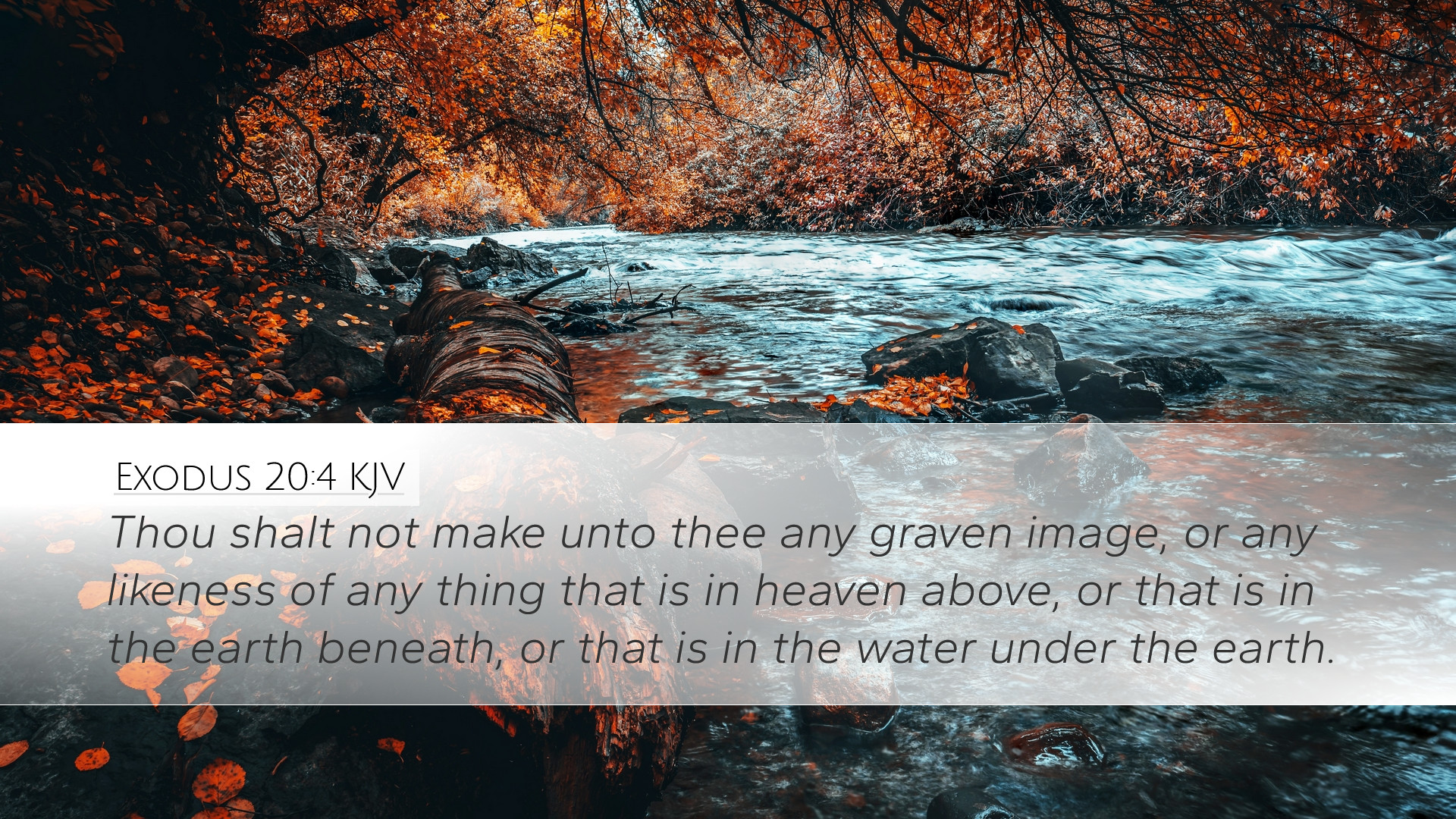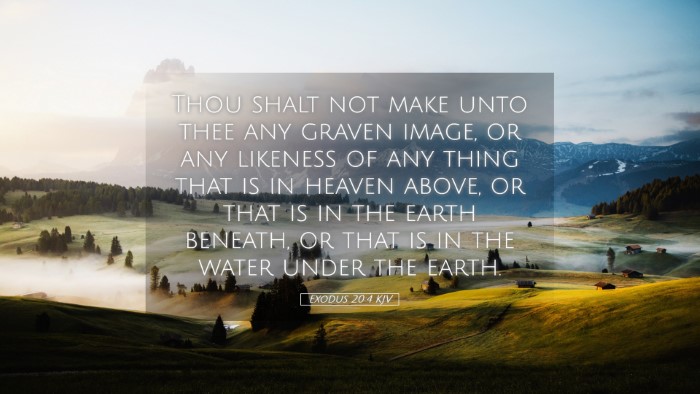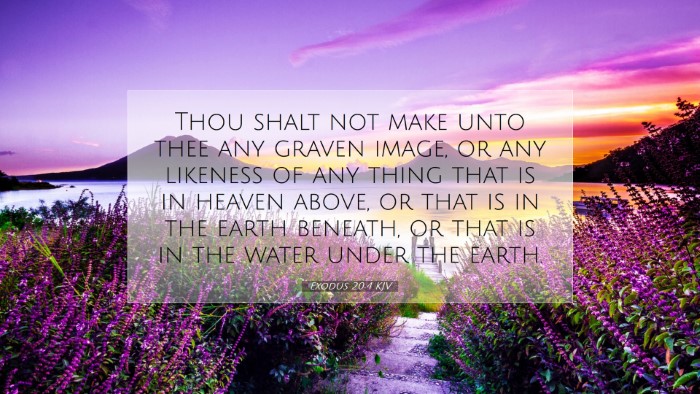Commentary on Exodus 20:4
Exodus 20:4 states, "You shall not make for yourself a carved image, or any likeness of anything that is in heaven above, or that is in the earth beneath, or that is in the water under the earth." This commandment is integral to understanding the nature of God as well as the fundamental relationship between God and His people. It reflects the call for the exclusive worship of the Almighty, free from any forms and representations that could distort His essence.
Context and Importance
In the context of the Pentateuch, this commandment is crucial as it comes immediately after the declaration of God's sovereignty and His redemptive work in delivering Israel from Egypt. Matthew Henry emphasizes that God introduces Himself and His rights before engaging in commandments, reflecting His authority and the appropriate response of His people.
Historical Background: Israel was recently freed from a polytheistic culture in Egypt. The command against images addresses a potential return to idolatry. Albert Barnes notes that this prohibition is grounded in the belief that God is spirit and cannot be encapsulated in physical form.
The Nature of Idolatry
Defining Idolatry: Idolatry is not merely the act of bowing down to physical statues; it encompasses any created thing that surpasses God in importance in the hearts of men. Adam Clarke elaborates on this point, indicating that the commandment transcends physical idols to include desires, ambitions, and anything that leads one away from true devotion to God.
- Physical vs. Spiritual Idolatry: While physical images are expressly forbidden, spiritual idols can take many forms, including wealth, power, or even self.
- Nature of God: The prohibition serves to remind believers of God's transcendence. No created likeness can adequately represent the nature of an infinite being.
Interpretation through the Ages
Historical Interpretations: Throughout biblical history, commentators from various traditions have interpreted this verse in ways that reflect their theological perspectives.
- First Century Jewish Thought: Early interpretations emphasized the direct action against idol-making as a cultural and religious necessity to maintain Israelite identity.
- Christian Church Views: The early Church expanded the interpretation to include the worship of Christ as the image of the invisible God (Colossians 1:15), balancing the prohibition against images with the recognition of Christ's divinity.
Application for Today’s Believer
Contemporary Relevance: For modern Christians, Exodus 20:4 challenges believers to examine their lives for "idols" that may not be made of wood or stone but can be equally dangerous.
- Self-Examination: Pastors and theologians encourage regular reflection on priorities and the potential for misplaced affections in aspects like career, technology, or relationships.
- Worship Practices: It invites a discussion on how worship practices might inadvertently reintroduce forms of idolatry if not centered on the true nature of God.
The Theological Implications
The prohibition against images carries heavy theological implications. Firstly, it affirms God’s sovereignty and transcendence, positioning Him as wholly other, beyond human comprehension or imagery.
- Revelation of God: The command indicates that God's revelation cannot be confined to human-made objects; rather, it is found in His Word and through His actions in history.
- Nature of True Worship: True worship acknowledges God in His fullness, not limited or diminished by human interpretations.
Concluding Thoughts
Exodus 20:4 stands as a timeless reminder of the dangers of idolatry and the call for undivided loyalty to God. As interpreted through the lens of scholars like Henry, Barnes, and Clarke, this verse encourages believers to engage in an authentic and deep relationship with God, free from the distractions of both physical and spiritual idols.
In summation, the call of this commandment is about recognizing the true nature of God and worshiping Him accordingly, ensuring that our adoration remains pure and directed solely at the Creator, who is above all things.


